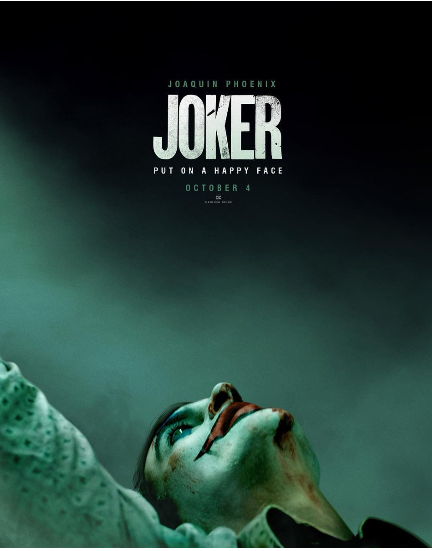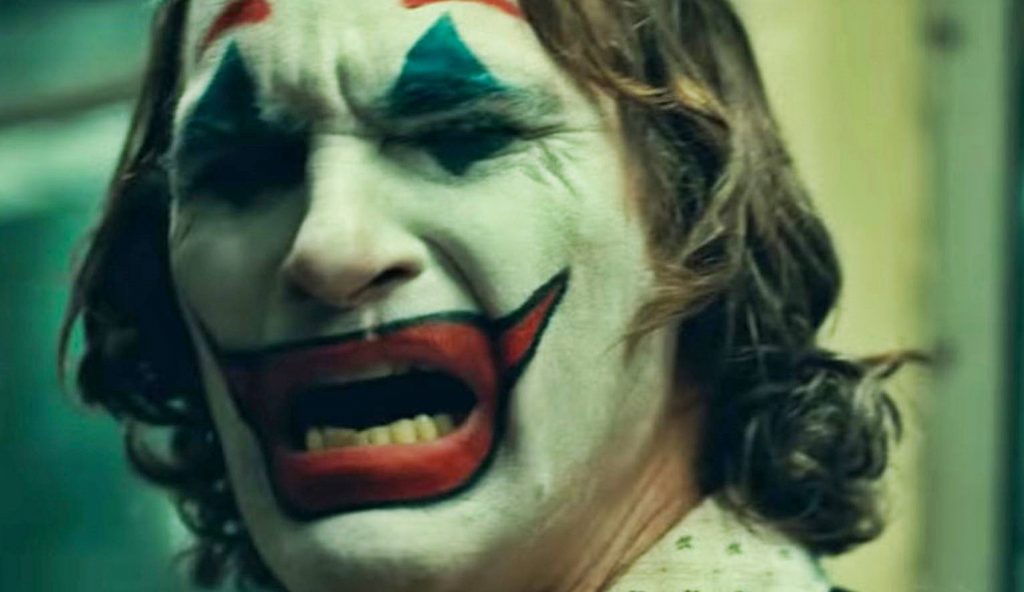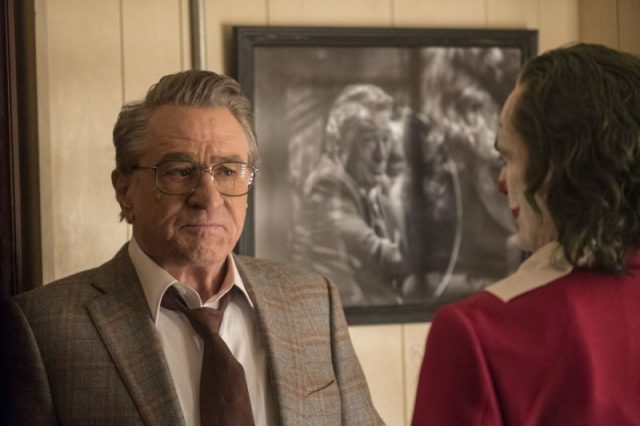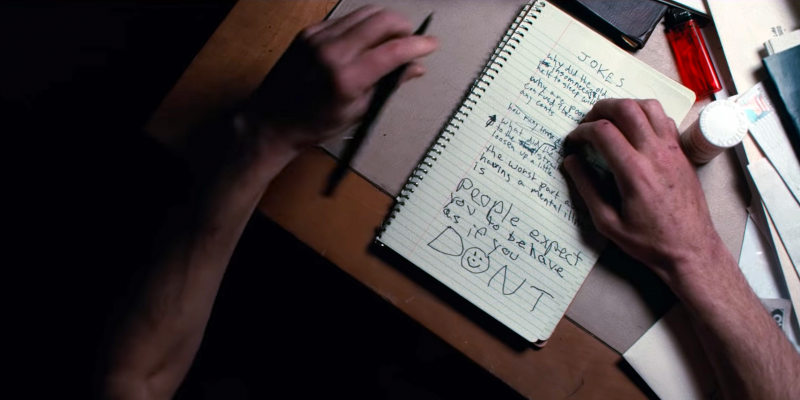
Director: Todd Phillips
Starring: Joaquin Phoenix (Arthur Fleck/Joker)
Zazie Beetz (Sophie Dumond)
Frances Conroy (Penny Fleck)
Robert DeNiro (Murray Franklin)
Brett Cullen (Thomas Wayne)
Screenplay: Todd Phillips & Scott Silver
Music: Hildur Guðnadóttir
Producers: Todd Phillips, Bradley Cooper & Emma Tillinger Koskoff
Publisher: Warner Brothers/DC Films
Price: Depends on Day/Time (I’m a $5 Tuesday guy, myself)
Available: In Theaters Now!
At the request of my esteemed editor, I offer an alternative take to intern Lily’s review (read it here) of The Joker. Quick caveat though, gentle reader: I am a lifelong Marvelite True Believer, and that’s only grown since the advent of the MCU and DC…multi…galaxy…whatever it is they’ve been doing. While the Dark Knight trilogy were excellent and Shazam was a blast, I frankly couldn’t even get myself to watch the Justice League. And Batman v. Superman? Don’t even ask.
Then came The Joker.
(and, frankly, Batman: White Knight and Harleen. Spoiler: they’re each just as brilliant. Go, order them now on Amazon or your local comic book store, if you haven’t already. Really. Now.)
When I saw the first trailer for the film this spring, I’ll admit I was intrigued. Joaquin Phoenix, love him or hate him (I align with the former), is among the most dedicated actors in Hollywood (and a good friend of the late Heath Ledger), and seemed an ideal casting for Batman’s nemesis. The Joker, of course, has always been one of the most enigmatic characters in any comic universe—as evidenced by the widely-varied but excellent previous cinematic takes on him by the likes of no less than Cesar Romero, Jack Nicholson, Mark Hamill and the aforementioned Ledger (I’m sorry, Jared who?).
That the hype built about the film the way it did was no great surprise—from any direction. Did it need to be made? (No—but then, have any of the DC movies really been necessary?) Does it have the potential to spur violence and beget imitative behavior among the masses? (Sure—to the same degree The Purge or, I don’t know, Night of the Living Dead did…morons!) How does it fit in the DC movie intermultigalaxy? (It doesn’t, thankfully—move on.) How does it work as a superhero film? (Well, see, it doesn’t—because it’s a standalone villain backstory film.) Is it a comic book film, or an art-house piece? Social commentary, or dark fantasy? You get the picture.
Being an individual equally likely to be found viewing an art-house flick as a grind-house one and as intrigued as I was, I figured I had to give it a shot (especially when the all-day trial I was supposed to testify at was canceled, and I found myself gifted with several free, unaccounted-for hours). So here goes…
The Joker is a powerful film—there’s really no way around it. I get the critics and the questions—it is violent, it is depressing, it is dark and hopeless. It’s hard to watch (like, Schindler’s List or Saving Private Ryan hard; you really only need to see the movie once), and definitely not a kid’s movie—frankly, I would have a hard time recommending it to any but the hardiest of adolescents (you go, Lily!) But…it’s the backstory of an utterly insane anarchist/mass-murderer, fer cripe’s sake!
Phoenix especially stands out, as expected. He is phenomenal…like, makes you almost forget about Ledger’s Joker phenomenal. Prior to seeing the film, I’d read some other reviews and interviews with him about the laugh he developed for the role. If you’re unaware, it’s no great spoiler to say that Arthur Fleck suffers from a trauma-driven condition in which he laughs inappropriately and near-randomly during situations in which he is emotionally activated. How Phoenix is able to convey intense and contrary emotion—sorrow, fear, worry, panic, anger—while performing this laugh is nothing short of amazing. Seriously, I’d recommend the film just to see him perform it; it’s that good.

And the supporting cast is no bunch of slouches. Each portrays their role acutely, and accurately. And convincingly…which is important, given the character progression they’re all setting up. Oh, and Thomas Wayne? Pompous, self-righteous asshat. No wonder Bruce was so messed up. Anyway…

The film presents us a plausible Joker backstory—one that successfully, in my mind, validates his later atrocities (both in the film and the assumed beyond), even if it doesn’t justify them. Now, Joker backstories are nigh-literally a dime a dozen—which is a good portion the fun of the character. Did he fall in a vat of chemicals? Suffer horrid abuse as a child/pre-teen/teen/adult mental health patient? Frankly, who knows—and who cares? His enigma is a large part of his appeal. The Joker definitely offers an intriguing possibility, though. The writing is tight and coherent, if gloomy to the point of dysthymia-inducing. The atmosphere captures 1980 (the year of its setting) perfectly: for those of you who don’t remember or weren’t alive for it, it was ugly. The people of Gotham, reflective of their time, are just not pleasant. Fleck’s mental illness, and the dismissal by which his community responds to it, are authentic. And it all contributes, weaving the tapestry that will be, by movie’s end, full-on Joker.

Now, let’s be clear: The Joker is not your typical comic book film. It’s set in Gotham, yes—though for all that, it may as well be 1980 New York City—and there is some very minor involvement by Thomas Wayne and his rather famous son, but there’s no capes, no superpowers, no flashy costumes (other than clown suits, which typically give me nightmares). There is no redemption arc, no hero beating the odds, or overcoming a horrible past or upbringing to achieve grace. Frankly, it’s more the opposite.
And like any good, meaningful film (despite what Scorsese and Coppola might think, comic book films can be and frequently are exactly that, but more on that in a future essay), The Joker addresses some rather serious social issues significant to our time. Chief among them, mental illness and how we do or do not address it. Central to the film is a journal entry in Fleck’s joke book/diary: “The worst part about having a mental illness is that people expect you to behave as if you don’t.” Having worked in the mental health field for better than 20 years, this is a statement that absolutely rings true. Beyond this dismissal, however, how does a creature like the Joker (or Jeffrey Dahmer, or Ed Gein) evolve, unnoticed? All the signs were certainly there, should anyone have cared to look; unfortunately, Gotham (and, oh, our nation’s insurance providers) had other things to spend its money on.

Interestingly, my daughter’s one critique of the film is that she didn’t feel like there was a single, world-changing climax, that instead there were a series of smaller events that led to the very brief climax at the end, and then BAM! Cue lights, roll credits. She was looking for that typical comic book movie ending, the climactic battle…but there isn’t one. And frankly, there shouldn’t be. The Joker (the bad guy, and I guess the film, as well) are a work in constant evolution, an organism forever shifting, progressing…mutating. Only, unlike the X-Men and their cool (yet somehow always sexy) powers, the mutation is in Fleck’s mind. And, like our sanity, it always seems to turn on the little events, or a sequence of them.
Phoenix, Phillips and anybody else with a voice in this film and the rest of the DC movie multiverse have made it clear that The Joker is a standalone, not going to have a sequel, prequel (I mean, it kind of already is one, really) or any tie-in with any other film, hero or otherwise. Phoenix specifically turned down doing work in the MCU due to their demand that he sign on for multiple films. Frankly, given what he put himself through for this role, I don’t know that his body could withstand another one.
And regardless, that’s an excellent choice. As outstanding a performance as Phoenix provided (personally, I’m thinking Oscar-worthy), this isn’t a Joker who’s going to last long in the world; he actually seems hell-bent to end it, and him, and perhaps in that order. I don’t see a film ever being big enough to fit him AND the Bat in it together.
So, there you have it. DC finally did one right (ok, I did like Shazam). Now please, please, please, for the love of Bob Kane and Bill Finger, find some other bad guy in the 80 years of Bat-history to use in the next bunch of godawful (how do I know they’re going to be godawful? Umm…Robert Pattinson, anyone?) Bat-films, and let the Joker rest!
Score: 9.5
Review by Andy Patch, thePullbox.com

